The Basic Branches of the U.S. Army form the foundation of the Army’s operations and
missions, encompassing a diverse range of career fields essential for military success.
These branches include key roles in combat, logistics, engineering, intelligence,
and technology, offering officers the opportunity to lead and contribute to the Army's
core functions. From Infantry and Armor to Signal Corps and Cyber Corps, each branch
plays a critical role in ensuring the Army's readiness, operational efficiency, and
mission success. Officers in these branches are trained to excel in leadership and
technical expertise, supporting the Army's ability to adapt and thrive in complex
environments.
|
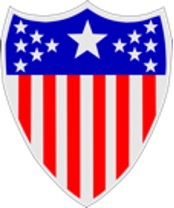 AG officers are the human resources experts of the Army, managing personnel systems
that ensure unit readiness, morale, and smooth career progression for soldiers. From
overseeing promotions and retirements to supporting the Army Bands and managing postal
services, AG officers keep the Army running efficiently. If you’re interested in leadership
roles within human resources and logistics, the Adjutant General Corps provides an
essential role in maintaining the Army’s internal operations. AG officers are the human resources experts of the Army, managing personnel systems
that ensure unit readiness, morale, and smooth career progression for soldiers. From
overseeing promotions and retirements to supporting the Army Bands and managing postal
services, AG officers keep the Army running efficiently. If you’re interested in leadership
roles within human resources and logistics, the Adjutant General Corps provides an
essential role in maintaining the Army’s internal operations.
Learn more about the AG Officers here.
|
| Air Defense Artillery (AD) |
|
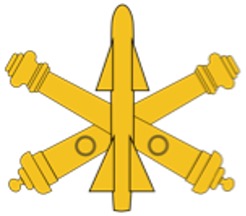 Air Defense Artillery officers are the Army’s first line of defense against airborne
threats such as missiles, aircraft, and drones. Using advanced systems like the Patriot
missile defense and Avenger systems, ADA officers manage air defense operations to
protect soldiers and key assets. If you are passionate about technology, defense,
and cutting-edge systems that keep the skies clear and the Army safe, this is a vital
and exciting role within the military. Air Defense Artillery officers are the Army’s first line of defense against airborne
threats such as missiles, aircraft, and drones. Using advanced systems like the Patriot
missile defense and Avenger systems, ADA officers manage air defense operations to
protect soldiers and key assets. If you are passionate about technology, defense,
and cutting-edge systems that keep the skies clear and the Army safe, this is a vital
and exciting role within the military.
Explore more about Air Defense Artillery Officers here.
|
|
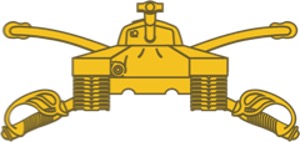 Armor officers command tank units and lead reconnaissance missions, playing a key
role in ground combat. Building on the tradition of the U.S. Horse Cavalry, Armor
officers lead with advanced tactics and technology to outmaneuver the enemy. These
leaders are physically fit, mentally tough, and exceptional decision-makers, responsible
for ensuring their units are trained to operate in any environment. If you’re seeking
a leadership role in high-paced, challenging combined arms operations, Armor is an
exciting and rewarding career path. Armor officers command tank units and lead reconnaissance missions, playing a key
role in ground combat. Building on the tradition of the U.S. Horse Cavalry, Armor
officers lead with advanced tactics and technology to outmaneuver the enemy. These
leaders are physically fit, mentally tough, and exceptional decision-makers, responsible
for ensuring their units are trained to operate in any environment. If you’re seeking
a leadership role in high-paced, challenging combined arms operations, Armor is an
exciting and rewarding career path.
Discover more about Armor Officers here.
|
|
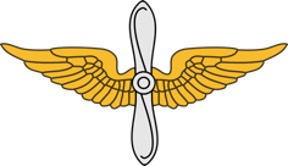 Aviation officers lead and command flight operations using helicopters like the Black
Hawk, Apache, and Chinook. Whether conducting medical evacuation (medevac) missions,
air assaults, or transporting troops and supplies, Aviation officers are essential
in Army operations. You’ll have the opportunity to lead air missions ranging from
fast-response strikes to long-range support. Additionally, you’ll train future Army
aviators, ensuring excellence and readiness in the skies. Aviation officers lead and command flight operations using helicopters like the Black
Hawk, Apache, and Chinook. Whether conducting medical evacuation (medevac) missions,
air assaults, or transporting troops and supplies, Aviation officers are essential
in Army operations. You’ll have the opportunity to lead air missions ranging from
fast-response strikes to long-range support. Additionally, you’ll train future Army
aviators, ensuring excellence and readiness in the skies.
Learn more about Aviation Officers here.
|
|
 The Chemical Corps is all about protecting the Army from chemical, biological, radiological,
and nuclear (CBRN) threats. As a CBRN Officer, you’ll lead specialized teams trained
to detect and neutralize hazardous materials and even weapons of mass destruction.
This path offers the opportunity to work in cutting-edge technology fields and gain
expertise in areas that are vital to national security. Plus, you'll be certified
in HAZMAT operations and handling dangerous substances, skills that transfer to both
military and civilian careers. The Chemical Corps is all about protecting the Army from chemical, biological, radiological,
and nuclear (CBRN) threats. As a CBRN Officer, you’ll lead specialized teams trained
to detect and neutralize hazardous materials and even weapons of mass destruction.
This path offers the opportunity to work in cutting-edge technology fields and gain
expertise in areas that are vital to national security. Plus, you'll be certified
in HAZMAT operations and handling dangerous substances, skills that transfer to both
military and civilian careers.
Discover more about CBRN Officers here.
|
|
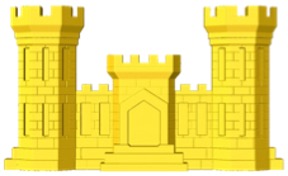 If you love solving complex problems and working with your hands, becoming an Engineer
Officer is a perfect fit. You’ll lead engineering projects that range from building
infrastructure in combat zones—like bridges and airfields—to managing disaster relief
and helping communities. Not only will you gain valuable leadership and technical
skills, but you'll also have the chance to make a tangible impact both on and off
the battlefield. ROTC gives you the opportunity to lead these efforts instead of just
participating, setting you up for leadership roles in both the Army and civilian engineering
fields. If you love solving complex problems and working with your hands, becoming an Engineer
Officer is a perfect fit. You’ll lead engineering projects that range from building
infrastructure in combat zones—like bridges and airfields—to managing disaster relief
and helping communities. Not only will you gain valuable leadership and technical
skills, but you'll also have the chance to make a tangible impact both on and off
the battlefield. ROTC gives you the opportunity to lead these efforts instead of just
participating, setting you up for leadership roles in both the Army and civilian engineering
fields.
Learn more about Engineer Officers here.
|
|
 In the digital age, Cyber Officers are at the forefront of protecting the Army’s networks
and data. You’ll not only defend against cyberattacks but also launch offensive operations
to disable enemy systems. By choosing this path, you’ll get to work with cutting-edge
technology and learn skills that are in demand in both the military and civilian sectors.
In ROTC, you’ll have the chance to lead teams in these high-stakes operations from
the start, giving you a major advantage over enlisting. In the digital age, Cyber Officers are at the forefront of protecting the Army’s networks
and data. You’ll not only defend against cyberattacks but also launch offensive operations
to disable enemy systems. By choosing this path, you’ll get to work with cutting-edge
technology and learn skills that are in demand in both the military and civilian sectors.
In ROTC, you’ll have the chance to lead teams in these high-stakes operations from
the start, giving you a major advantage over enlisting.
Explore more about Cyber Officers here.
|
|
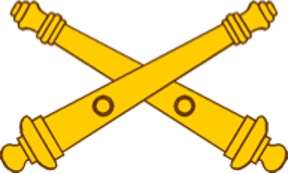 Field Artillery Officers are responsible for the Army’s heavy firepower—coordinating
the use of cannons, rockets, and missiles to protect ground troops and take down enemy
forces. As an officer, you’ll command artillery units that provide the critical firepower
needed to win battles. The ROTC path allows you to lead these operations and learn
how to manage advanced systems that are crucial in combat. You’ll gain leadership
experience that makes you stand out, both in the Army and in civilian leadership roles. Field Artillery Officers are responsible for the Army’s heavy firepower—coordinating
the use of cannons, rockets, and missiles to protect ground troops and take down enemy
forces. As an officer, you’ll command artillery units that provide the critical firepower
needed to win battles. The ROTC path allows you to lead these operations and learn
how to manage advanced systems that are crucial in combat. You’ll gain leadership
experience that makes you stand out, both in the Army and in civilian leadership roles.
Discover more about Field Artillery here.
|
|
 The Finance Corps is essential to the Army’s operations. As a Finance Officer, you’ll
manage everything from payroll to complex budgeting for large missions. This role
gives you a deep understanding of financial systems, and you’ll have the opportunity
to develop leadership skills that can be applied in any career. Through ROTC, you’ll
gain these financial management skills as a leader, setting you up for success in
business, government, or any other field where financial expertise is critical. The Finance Corps is essential to the Army’s operations. As a Finance Officer, you’ll
manage everything from payroll to complex budgeting for large missions. This role
gives you a deep understanding of financial systems, and you’ll have the opportunity
to develop leadership skills that can be applied in any career. Through ROTC, you’ll
gain these financial management skills as a leader, setting you up for success in
business, government, or any other field where financial expertise is critical.
Learn more about Finance Officers here.
|
|
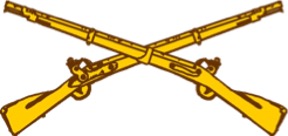 As an Infantry Officer, you’ll lead the Army’s ground combat forces. You won’t just
be part of the action—you’ll be the one making critical decisions in battle. The ROTC
path gives you the opportunity to lead soldiers, make tactical decisions, and manage
complex operations that directly impact the outcome of missions. By starting as an
officer, you’ll fast-track your career and develop leadership abilities that set you
apart in both the military and civilian worlds. As an Infantry Officer, you’ll lead the Army’s ground combat forces. You won’t just
be part of the action—you’ll be the one making critical decisions in battle. The ROTC
path gives you the opportunity to lead soldiers, make tactical decisions, and manage
complex operations that directly impact the outcome of missions. By starting as an
officer, you’ll fast-track your career and develop leadership abilities that set you
apart in both the military and civilian worlds.
Explore more about Infantry Officers here.
|
| Military Intelligence (MI) |
|
 Military Intelligence Officers are the ones who keep the Army a step ahead of the
enemy. You’ll lead teams that gather and analyze information from various sources—whether
it’s drone footage, human intelligence, or satellite data. This branch offers opportunities
to work with cutting-edge technology and provides valuable skills in data analysis
and decision-making. Through ROTC, you’ll have the chance to lead these intelligence
teams, positioning you for advanced roles both in the Army and in tech-driven civilian
careers. Military Intelligence Officers are the ones who keep the Army a step ahead of the
enemy. You’ll lead teams that gather and analyze information from various sources—whether
it’s drone footage, human intelligence, or satellite data. This branch offers opportunities
to work with cutting-edge technology and provides valuable skills in data analysis
and decision-making. Through ROTC, you’ll have the chance to lead these intelligence
teams, positioning you for advanced roles both in the Army and in tech-driven civilian
careers.
Learn more about Military Intelligence Officers here.
|
|
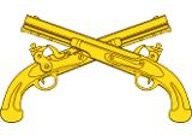 As a Military Police Officer, you’ll lead teams responsible for law enforcement, security,
and peacekeeping both on and off Army bases. From managing detention operations to
investigating crimes, you’ll play a key role in maintaining order within the Army.
In ROTC, you’ll develop leadership skills that will prepare you to lead these teams
and make decisions that directly affect the safety and security of soldiers. This
path also sets you up for a career in civilian law enforcement or security. As a Military Police Officer, you’ll lead teams responsible for law enforcement, security,
and peacekeeping both on and off Army bases. From managing detention operations to
investigating crimes, you’ll play a key role in maintaining order within the Army.
In ROTC, you’ll develop leadership skills that will prepare you to lead these teams
and make decisions that directly affect the safety and security of soldiers. This
path also sets you up for a career in civilian law enforcement or security.
Explore more about Military Police Officers here.
|
|
 Ordnance Officers are responsible for maintaining and managing the Army’s weapons,
vehicles, and ammunition. You’ll ensure everything is combat-ready, and as an officer,
you’ll lead logistics teams that keep the Army’s equipment in top shape. ROTC offers
you the opportunity to manage these complex systems and lead teams, giving you a head
start over enlisting, where you’d start as a technician rather than a leader. Ordnance Officers are responsible for maintaining and managing the Army’s weapons,
vehicles, and ammunition. You’ll ensure everything is combat-ready, and as an officer,
you’ll lead logistics teams that keep the Army’s equipment in top shape. ROTC offers
you the opportunity to manage these complex systems and lead teams, giving you a head
start over enlisting, where you’d start as a technician rather than a leader.
Discover more about Ordnance Officers here.
|
| Explosive Ordnance Disposal (EOD) |
|
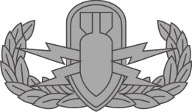 EOD Officers handle some of the most dangerous tasks in the Army, from disarming explosives
to handling unexploded ordnance. You’ll be responsible for making quick, high-stakes
decisions that protect soldiers and civilians. By going through ROTC, you’ll be trained
to lead EOD teams, rather than starting at the entry level, giving you advanced leadership
and technical skills from the beginning. EOD Officers handle some of the most dangerous tasks in the Army, from disarming explosives
to handling unexploded ordnance. You’ll be responsible for making quick, high-stakes
decisions that protect soldiers and civilians. By going through ROTC, you’ll be trained
to lead EOD teams, rather than starting at the entry level, giving you advanced leadership
and technical skills from the beginning.
Learn more about EOD Officers here.
|
|
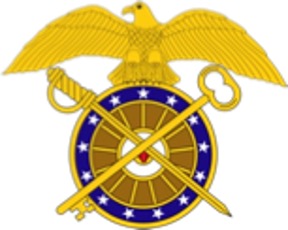 Quartermasters are the backbone of the Army’s logistics system, ensuring that soldiers
have everything they need—from food to fuel—wherever they are. As an officer, you’ll
oversee supply chains and manage teams to keep the Army moving. The leadership experience
you’ll gain through ROTC prepares you to manage these operations and equips you with
logistics skills that are in demand in civilian industries as well. Quartermasters are the backbone of the Army’s logistics system, ensuring that soldiers
have everything they need—from food to fuel—wherever they are. As an officer, you’ll
oversee supply chains and manage teams to keep the Army moving. The leadership experience
you’ll gain through ROTC prepares you to manage these operations and equips you with
logistics skills that are in demand in civilian industries as well.
Discover more about Quartermaster Officers here.
|
|
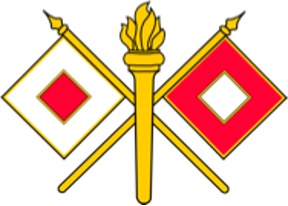 Signal Officers manage the Army’s entire communication network, ensuring that data,
voice, and video communications are secure and reliable. You’ll oversee teams that
operate radios, satellite systems, and secure data networks, ensuring the Army stays
connected in every situation. As an ROTC-trained officer, you’ll lead these operations
from the start, setting you up for leadership roles in both military and civilian
tech fields. Signal Officers manage the Army’s entire communication network, ensuring that data,
voice, and video communications are secure and reliable. You’ll oversee teams that
operate radios, satellite systems, and secure data networks, ensuring the Army stays
connected in every situation. As an ROTC-trained officer, you’ll lead these operations
from the start, setting you up for leadership roles in both military and civilian
tech fields.
Explore more about Signal Officers here.
|
| Transportation Corps (TC) |
|
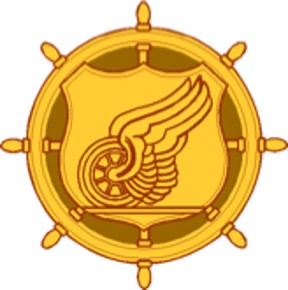 Transportation Officers are responsible for moving troops, equipment, and supplies
by land, air, and sea. You’ll ensure that the Army is mobile and ready to deploy anywhere
in the world. In ROTC, you’ll develop the leadership and logistical planning skills
to oversee these complex operations, giving you an edge in both military and civilian
logistics careers. Transportation Officers are responsible for moving troops, equipment, and supplies
by land, air, and sea. You’ll ensure that the Army is mobile and ready to deploy anywhere
in the world. In ROTC, you’ll develop the leadership and logistical planning skills
to oversee these complex operations, giving you an edge in both military and civilian
logistics careers.
Discover more about Transportation Officers here.
|
 AG officers are the human resources experts of the Army, managing personnel systems
that ensure unit readiness, morale, and smooth career progression for soldiers. From
overseeing promotions and retirements to supporting the Army Bands and managing postal
services, AG officers keep the Army running efficiently. If you’re interested in leadership
roles within human resources and logistics, the Adjutant General Corps provides an
essential role in maintaining the Army’s internal operations.
AG officers are the human resources experts of the Army, managing personnel systems
that ensure unit readiness, morale, and smooth career progression for soldiers. From
overseeing promotions and retirements to supporting the Army Bands and managing postal
services, AG officers keep the Army running efficiently. If you’re interested in leadership
roles within human resources and logistics, the Adjutant General Corps provides an
essential role in maintaining the Army’s internal operations. Air Defense Artillery officers are the Army’s first line of defense against airborne
threats such as missiles, aircraft, and drones. Using advanced systems like the Patriot
missile defense and Avenger systems, ADA officers manage air defense operations to
protect soldiers and key assets. If you are passionate about technology, defense,
and cutting-edge systems that keep the skies clear and the Army safe, this is a vital
and exciting role within the military.
Air Defense Artillery officers are the Army’s first line of defense against airborne
threats such as missiles, aircraft, and drones. Using advanced systems like the Patriot
missile defense and Avenger systems, ADA officers manage air defense operations to
protect soldiers and key assets. If you are passionate about technology, defense,
and cutting-edge systems that keep the skies clear and the Army safe, this is a vital
and exciting role within the military. Armor officers command tank units and lead reconnaissance missions, playing a key
role in ground combat. Building on the tradition of the U.S. Horse Cavalry, Armor
officers lead with advanced tactics and technology to outmaneuver the enemy. These
leaders are physically fit, mentally tough, and exceptional decision-makers, responsible
for ensuring their units are trained to operate in any environment. If you’re seeking
a leadership role in high-paced, challenging combined arms operations, Armor is an
exciting and rewarding career path.
Armor officers command tank units and lead reconnaissance missions, playing a key
role in ground combat. Building on the tradition of the U.S. Horse Cavalry, Armor
officers lead with advanced tactics and technology to outmaneuver the enemy. These
leaders are physically fit, mentally tough, and exceptional decision-makers, responsible
for ensuring their units are trained to operate in any environment. If you’re seeking
a leadership role in high-paced, challenging combined arms operations, Armor is an
exciting and rewarding career path. Aviation officers lead and command flight operations using helicopters like the Black
Hawk, Apache, and Chinook. Whether conducting medical evacuation (medevac) missions,
air assaults, or transporting troops and supplies, Aviation officers are essential
in Army operations. You’ll have the opportunity to lead air missions ranging from
fast-response strikes to long-range support. Additionally, you’ll train future Army
aviators, ensuring excellence and readiness in the skies.
Aviation officers lead and command flight operations using helicopters like the Black
Hawk, Apache, and Chinook. Whether conducting medical evacuation (medevac) missions,
air assaults, or transporting troops and supplies, Aviation officers are essential
in Army operations. You’ll have the opportunity to lead air missions ranging from
fast-response strikes to long-range support. Additionally, you’ll train future Army
aviators, ensuring excellence and readiness in the skies. The Chemical Corps is all about protecting the Army from chemical, biological, radiological,
and nuclear (CBRN) threats. As a CBRN Officer, you’ll lead specialized teams trained
to detect and neutralize hazardous materials and even weapons of mass destruction.
This path offers the opportunity to work in cutting-edge technology fields and gain
expertise in areas that are vital to national security. Plus, you'll be certified
in HAZMAT operations and handling dangerous substances, skills that transfer to both
military and civilian careers.
The Chemical Corps is all about protecting the Army from chemical, biological, radiological,
and nuclear (CBRN) threats. As a CBRN Officer, you’ll lead specialized teams trained
to detect and neutralize hazardous materials and even weapons of mass destruction.
This path offers the opportunity to work in cutting-edge technology fields and gain
expertise in areas that are vital to national security. Plus, you'll be certified
in HAZMAT operations and handling dangerous substances, skills that transfer to both
military and civilian careers. If you love solving complex problems and working with your hands, becoming an Engineer
Officer is a perfect fit. You’ll lead engineering projects that range from building
infrastructure in combat zones—like bridges and airfields—to managing disaster relief
and helping communities. Not only will you gain valuable leadership and technical
skills, but you'll also have the chance to make a tangible impact both on and off
the battlefield. ROTC gives you the opportunity to lead these efforts instead of just
participating, setting you up for leadership roles in both the Army and civilian engineering
fields.
If you love solving complex problems and working with your hands, becoming an Engineer
Officer is a perfect fit. You’ll lead engineering projects that range from building
infrastructure in combat zones—like bridges and airfields—to managing disaster relief
and helping communities. Not only will you gain valuable leadership and technical
skills, but you'll also have the chance to make a tangible impact both on and off
the battlefield. ROTC gives you the opportunity to lead these efforts instead of just
participating, setting you up for leadership roles in both the Army and civilian engineering
fields. In the digital age, Cyber Officers are at the forefront of protecting the Army’s networks
and data. You’ll not only defend against cyberattacks but also launch offensive operations
to disable enemy systems. By choosing this path, you’ll get to work with cutting-edge
technology and learn skills that are in demand in both the military and civilian sectors.
In ROTC, you’ll have the chance to lead teams in these high-stakes operations from
the start, giving you a major advantage over enlisting.
In the digital age, Cyber Officers are at the forefront of protecting the Army’s networks
and data. You’ll not only defend against cyberattacks but also launch offensive operations
to disable enemy systems. By choosing this path, you’ll get to work with cutting-edge
technology and learn skills that are in demand in both the military and civilian sectors.
In ROTC, you’ll have the chance to lead teams in these high-stakes operations from
the start, giving you a major advantage over enlisting. Field Artillery Officers are responsible for the Army’s heavy firepower—coordinating
the use of cannons, rockets, and missiles to protect ground troops and take down enemy
forces. As an officer, you’ll command artillery units that provide the critical firepower
needed to win battles. The ROTC path allows you to lead these operations and learn
how to manage advanced systems that are crucial in combat. You’ll gain leadership
experience that makes you stand out, both in the Army and in civilian leadership roles.
Field Artillery Officers are responsible for the Army’s heavy firepower—coordinating
the use of cannons, rockets, and missiles to protect ground troops and take down enemy
forces. As an officer, you’ll command artillery units that provide the critical firepower
needed to win battles. The ROTC path allows you to lead these operations and learn
how to manage advanced systems that are crucial in combat. You’ll gain leadership
experience that makes you stand out, both in the Army and in civilian leadership roles. The Finance Corps is essential to the Army’s operations. As a Finance Officer, you’ll
manage everything from payroll to complex budgeting for large missions. This role
gives you a deep understanding of financial systems, and you’ll have the opportunity
to develop leadership skills that can be applied in any career. Through ROTC, you’ll
gain these financial management skills as a leader, setting you up for success in
business, government, or any other field where financial expertise is critical.
The Finance Corps is essential to the Army’s operations. As a Finance Officer, you’ll
manage everything from payroll to complex budgeting for large missions. This role
gives you a deep understanding of financial systems, and you’ll have the opportunity
to develop leadership skills that can be applied in any career. Through ROTC, you’ll
gain these financial management skills as a leader, setting you up for success in
business, government, or any other field where financial expertise is critical. As an Infantry Officer, you’ll lead the Army’s ground combat forces. You won’t just
be part of the action—you’ll be the one making critical decisions in battle. The ROTC
path gives you the opportunity to lead soldiers, make tactical decisions, and manage
complex operations that directly impact the outcome of missions. By starting as an
officer, you’ll fast-track your career and develop leadership abilities that set you
apart in both the military and civilian worlds.
As an Infantry Officer, you’ll lead the Army’s ground combat forces. You won’t just
be part of the action—you’ll be the one making critical decisions in battle. The ROTC
path gives you the opportunity to lead soldiers, make tactical decisions, and manage
complex operations that directly impact the outcome of missions. By starting as an
officer, you’ll fast-track your career and develop leadership abilities that set you
apart in both the military and civilian worlds. Military Intelligence Officers are the ones who keep the Army a step ahead of the
enemy. You’ll lead teams that gather and analyze information from various sources—whether
it’s drone footage, human intelligence, or satellite data. This branch offers opportunities
to work with cutting-edge technology and provides valuable skills in data analysis
and decision-making. Through ROTC, you’ll have the chance to lead these intelligence
teams, positioning you for advanced roles both in the Army and in tech-driven civilian
careers.
Military Intelligence Officers are the ones who keep the Army a step ahead of the
enemy. You’ll lead teams that gather and analyze information from various sources—whether
it’s drone footage, human intelligence, or satellite data. This branch offers opportunities
to work with cutting-edge technology and provides valuable skills in data analysis
and decision-making. Through ROTC, you’ll have the chance to lead these intelligence
teams, positioning you for advanced roles both in the Army and in tech-driven civilian
careers. As a Military Police Officer, you’ll lead teams responsible for law enforcement, security,
and peacekeeping both on and off Army bases. From managing detention operations to
investigating crimes, you’ll play a key role in maintaining order within the Army.
In ROTC, you’ll develop leadership skills that will prepare you to lead these teams
and make decisions that directly affect the safety and security of soldiers. This
path also sets you up for a career in civilian law enforcement or security.
As a Military Police Officer, you’ll lead teams responsible for law enforcement, security,
and peacekeeping both on and off Army bases. From managing detention operations to
investigating crimes, you’ll play a key role in maintaining order within the Army.
In ROTC, you’ll develop leadership skills that will prepare you to lead these teams
and make decisions that directly affect the safety and security of soldiers. This
path also sets you up for a career in civilian law enforcement or security. Ordnance Officers are responsible for maintaining and managing the Army’s weapons,
vehicles, and ammunition. You’ll ensure everything is combat-ready, and as an officer,
you’ll lead logistics teams that keep the Army’s equipment in top shape. ROTC offers
you the opportunity to manage these complex systems and lead teams, giving you a head
start over enlisting, where you’d start as a technician rather than a leader.
Ordnance Officers are responsible for maintaining and managing the Army’s weapons,
vehicles, and ammunition. You’ll ensure everything is combat-ready, and as an officer,
you’ll lead logistics teams that keep the Army’s equipment in top shape. ROTC offers
you the opportunity to manage these complex systems and lead teams, giving you a head
start over enlisting, where you’d start as a technician rather than a leader. EOD Officers handle some of the most dangerous tasks in the Army, from disarming explosives
to handling unexploded ordnance. You’ll be responsible for making quick, high-stakes
decisions that protect soldiers and civilians. By going through ROTC, you’ll be trained
to lead EOD teams, rather than starting at the entry level, giving you advanced leadership
and technical skills from the beginning.
EOD Officers handle some of the most dangerous tasks in the Army, from disarming explosives
to handling unexploded ordnance. You’ll be responsible for making quick, high-stakes
decisions that protect soldiers and civilians. By going through ROTC, you’ll be trained
to lead EOD teams, rather than starting at the entry level, giving you advanced leadership
and technical skills from the beginning. Quartermasters are the backbone of the Army’s logistics system, ensuring that soldiers
have everything they need—from food to fuel—wherever they are. As an officer, you’ll
oversee supply chains and manage teams to keep the Army moving. The leadership experience
you’ll gain through ROTC prepares you to manage these operations and equips you with
logistics skills that are in demand in civilian industries as well.
Quartermasters are the backbone of the Army’s logistics system, ensuring that soldiers
have everything they need—from food to fuel—wherever they are. As an officer, you’ll
oversee supply chains and manage teams to keep the Army moving. The leadership experience
you’ll gain through ROTC prepares you to manage these operations and equips you with
logistics skills that are in demand in civilian industries as well. Signal Officers manage the Army’s entire communication network, ensuring that data,
voice, and video communications are secure and reliable. You’ll oversee teams that
operate radios, satellite systems, and secure data networks, ensuring the Army stays
connected in every situation. As an ROTC-trained officer, you’ll lead these operations
from the start, setting you up for leadership roles in both military and civilian
tech fields.
Signal Officers manage the Army’s entire communication network, ensuring that data,
voice, and video communications are secure and reliable. You’ll oversee teams that
operate radios, satellite systems, and secure data networks, ensuring the Army stays
connected in every situation. As an ROTC-trained officer, you’ll lead these operations
from the start, setting you up for leadership roles in both military and civilian
tech fields. Transportation Officers are responsible for moving troops, equipment, and supplies
by land, air, and sea. You’ll ensure that the Army is mobile and ready to deploy anywhere
in the world. In ROTC, you’ll develop the leadership and logistical planning skills
to oversee these complex operations, giving you an edge in both military and civilian
logistics careers.
Transportation Officers are responsible for moving troops, equipment, and supplies
by land, air, and sea. You’ll ensure that the Army is mobile and ready to deploy anywhere
in the world. In ROTC, you’ll develop the leadership and logistical planning skills
to oversee these complex operations, giving you an edge in both military and civilian
logistics careers.
 All Rights Reserved
All Rights Reserved